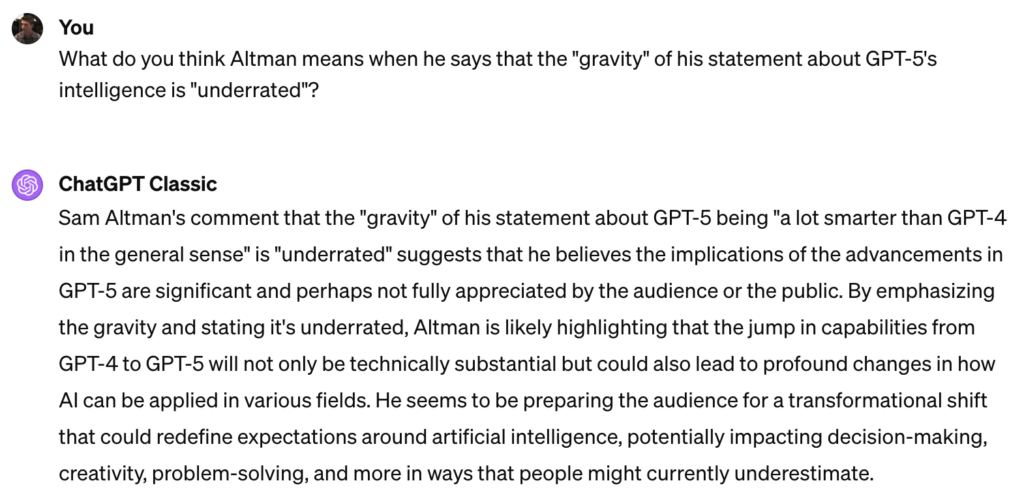Welcome to the newest edition of FindBiometrics’ AI update. Here’s the latest big news on the shifting landscape of AI and identity technology:

OpenAI CEO Sam Altman says that GPT-5, his firm’s next AI model, will be “a lot smarter than GPT-4 in the general sense,” emphasizing that the “gravity of that statement is underrated.” Speaking at a Stanford event, Altman also said that “GPT-4 is the dumbest model any of you will have to use again, by a lot.”
Microsoft and Google both reported double-digit revenue growth in their Q1 results, thanks in large part to AI driven gains in their data center operations. Google’s CFO said that capital expenditures would rise by at least 50 percent this year as J.P. Morgan analysts suggested that “Google is beginning to go on the offensive” after struggling to catch up in the AI race.
Apple, which is perceived to be further behind, has been poaching AI engineers from Google. It has also built out a new AI-focused “Vision Lab” in Zurich, following its acquisition of the AI startups FaceShift and Fashwell. It is not broadcasting its efforts; a neighbor told the FT that they were not even aware of the Vision Lab’s existence.
Blaize has raised $106 million in funding, with contributions from Mercedes Benz and Franklin Templeton, among others. The startup has developed a system-on-chip solution, the Blaize 1600, that is designed to efficiently run neural networks in edge devices and data centers.
AMD raised its sales forecast for AI chips from $3.5 billion to $4 billion for 2024. The company’s MI300 AI chip has brought in $1 billion in sales, making it AMD’s fastest-selling product ever. Chair and CEO Lisa Su says it’s “an incredibly exciting time for the industry as widespread deployment of AI is driving demand for significantly more compute across a broad range of markets.”
Samsung’s chip division saw Q1 operating profits triple year-over-year, at about $1.4 billion. Jaejune Kim, the company’s semiconductor division director, said AI is driving demand mainly for Samsung’s memory chips, but also for its ultra-high density hard drives. “As AI providers increase, the size of training data becomes proportionally bigger, leading to higher performance and data storage needs,” Kim explained.
Samsung’s major chip rival, SK Hynix, says its capacity to manufacture high-bandwidth memory chips is nearly fully booked through 2025, amid strong AI demand. The company plans to begin mass production of its HBM chip in Q3 of this year. CFO Kim Woo-hyun says cash from operations will fuel plans to further expand capacity, but that SK Hynix will seek to raise capital in the mid- to long-term.
A startup called Synthesia has upgraded its AI avatar model, enabling end users to interact with AI actors that can effectively read the mood of a conversation, and adjust their intonations and “body language” accordingly. Its AI avatars are reportedly being used by major corporations including Nike, Google, and the BBC.
The chatbot’s take: This week, we managed to turn GPT-4 into a hype man for GPT-5.

–
May 3, 2024 – by Alex Perala








Follow Us